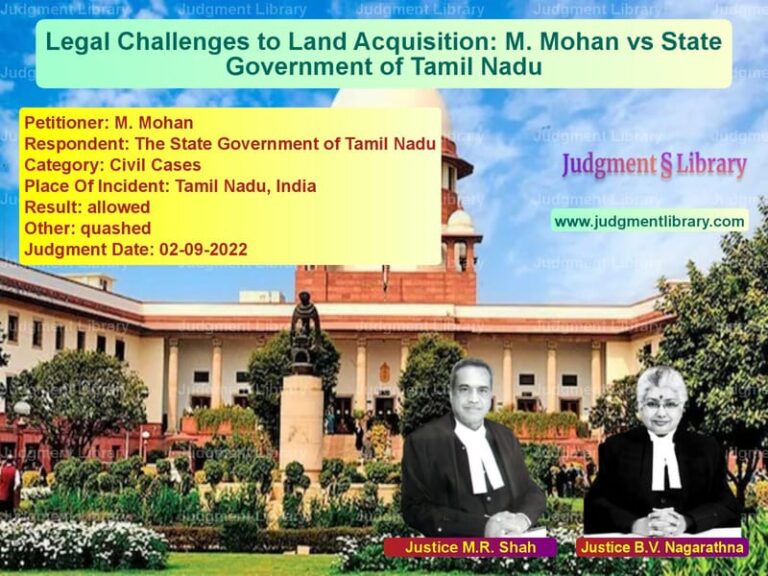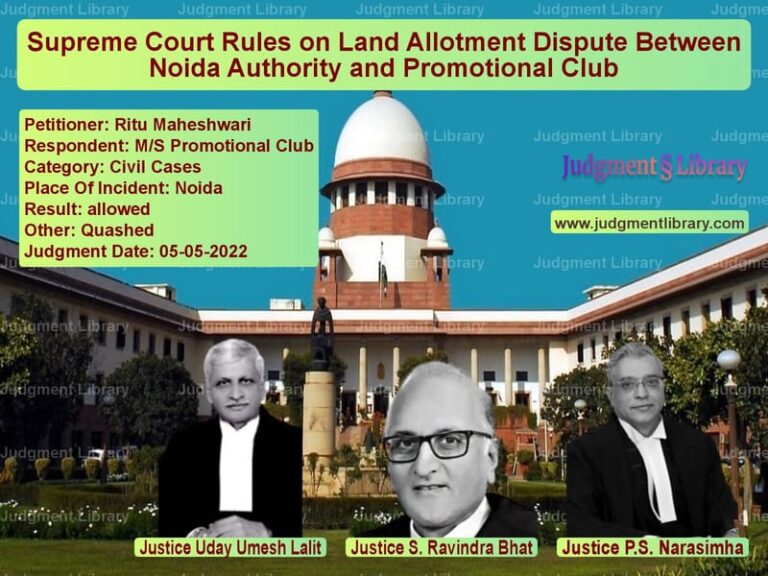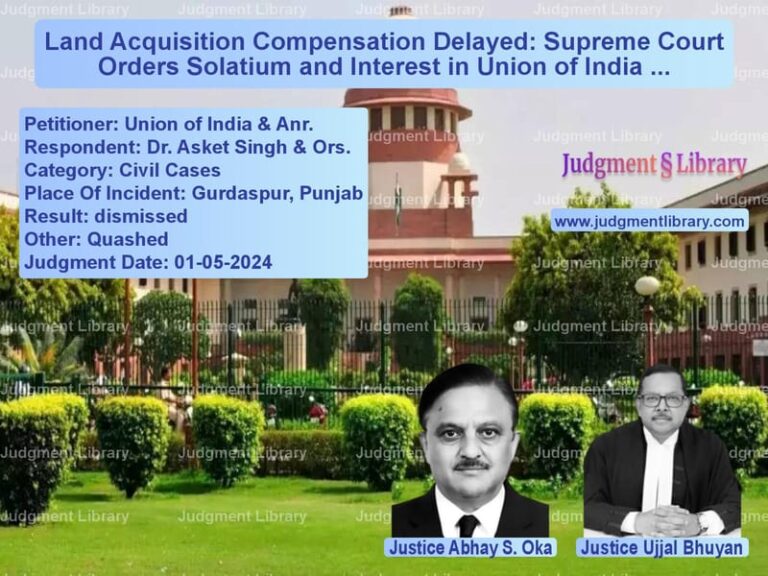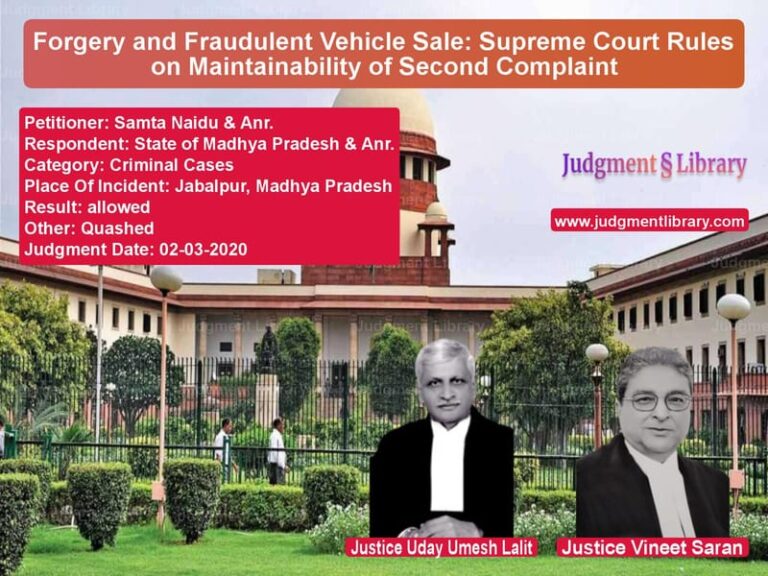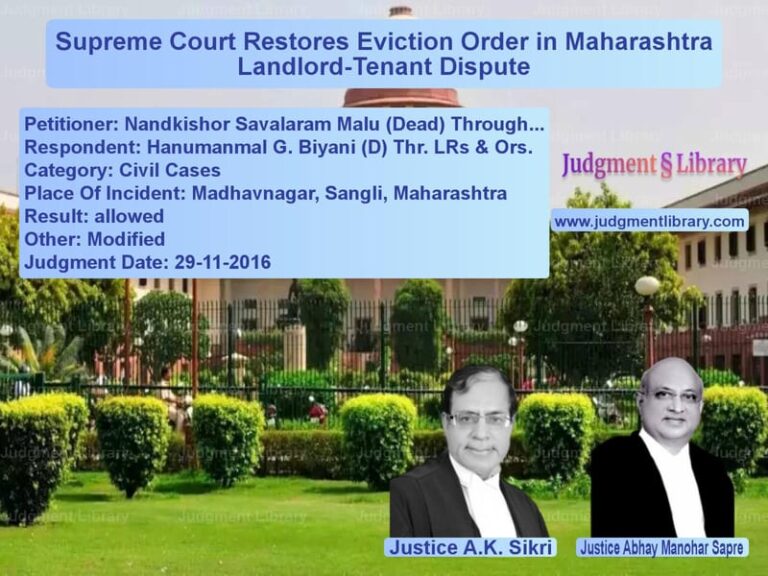Arbitration Ruling: NTPC vs. Deconar Services Pvt. Ltd. – Supreme Court Upholds Award
The case of NTPC Ltd. vs. M/s Deconar Services Pvt. Ltd. is a significant ruling by the Supreme Court of India in the realm of arbitration law. The case primarily deals with disputes arising from construction contracts, the scope of an arbitrator’s power, and the extent to which courts can interfere with arbitral awards. This judgment highlights the principles governing arbitration under the Arbitration Act, 1940, and reinforces the limited scope of judicial interference…
The appeals arose from an arbitration dispute where NTPC Ltd. (National Thermal Power Corporation) and M/s Deconar Services Pvt. Ltd. were involved in a contractual disagreement over construction delays, cost escalations, and rebate claims. The matter was initially taken to arbitration, where the arbitrator ruled in favor of Deconar Services. NTPC challenged this award in the Delhi High Court, which upheld the arbitrator’s decision. Dissatisfied with the verdict, NTPC approached the Supreme Co…
Background of the Case
NTPC had issued tenders for the construction of staff quarters, for which M/s Deconar Services Pvt. Ltd. was one of the bidders. The dispute revolved around two contracts:
- The first contract was for the construction of 100 units of Type A and B quarters.
- The second contract was for the construction of 68 units of Type B, C, and D quarters.
NTPC awarded both contracts to Deconar Services, following negotiations that resulted in a 16% rebate being offered by the contractor, contingent on being awarded both contracts.
Legal Issues Raised
1. Validity of the 16% Rebate
One of the key issues in the dispute was whether the 16% rebate offered by Deconar Services was conditional. The arbitrator ruled in favor of the contractor, holding that the rebate was contingent on both contracts being executed together. NTPC, however, argued that the rebate was unconditional and should apply regardless of construction delays.
2. Cost Escalations Due to Delay
Another contentious issue was whether the contractor was entitled to escalated costs due to delays in project execution. NTPC contended that the contract stipulated a fixed price and that cost escalations were not permissible. The arbitrator, however, ruled that since NTPC was responsible for project delays, the contractor was entitled to compensation.
3. Judicial Interference in Arbitral Awards
NTPC challenged the arbitrator’s decision in the Delhi High Court, arguing that the award was contrary to the contract terms and should be set aside. However, the High Court upheld the arbitrator’s ruling, reiterating that courts should not interfere in arbitration matters unless there is a clear case of illegality or arbitral misconduct.
Supreme Court’s Observations
The Supreme Court, after reviewing the submissions, made the following key observations:
- The Court reaffirmed that arbitration is a preferred mode of dispute resolution and that courts should not act as appellate forums to reassess evidence considered by the arbitrator.
- Regarding the rebate issue, the Court found that the arbitrator’s interpretation was reasonable. The rebate was conditional, and since NTPC failed to hand over sites on time, the contractor was entitled to revoke it.
- On the issue of cost escalations, the Court observed that the arbitrator had relied on documentary evidence and expert opinions before ruling in favor of Deconar Services. Since NTPC caused project delays, the escalation claim was justified.
- The Court emphasized that arbitral awards should be upheld unless they are perverse or completely contrary to legal principles.
Final Verdict
The Supreme Court dismissed NTPC’s appeals, ruling that:
- The rebate was rightfully revoked due to NTPC’s delays.
- The contractor was entitled to cost escalations since NTPC failed to fulfill its contractual obligations in a timely manner.
- Courts should not interfere with arbitral awards unless there is a gross miscarriage of justice.
Impact of the Judgment
This ruling has significant implications for arbitration in India, particularly in cases involving public sector undertakings and large-scale infrastructure contracts. It underscores the importance of respecting arbitral decisions and limiting judicial interference to exceptional cases.
The judgment serves as a reminder to parties entering into contracts that:
- Clear and precise contract terms are essential to avoid disputes.
- Delays caused by one party may entitle the other party to compensation, even if the contract specifies a fixed price.
- Arbitration is a final and binding process, and courts will generally not re-evaluate findings unless there is a clear violation of law.
With this ruling, the Supreme Court has reinforced the fundamental principles of arbitration and provided clarity on how courts should approach arbitral disputes.
Petitioner Name: NTPC Ltd..Respondent Name: M/s Deconar Services Pvt. Ltd..Judgment By: Justice N.V. Ramana, Justice Surya Kant, Justice Aniruddh Bose.Place Of Incident: India.Judgment Date: 04-03-2021.
Don’t miss out on the full details! Download the complete judgment in PDF format below and gain valuable insights instantly!
Download Judgment: ntpc-ltd.-vs-ms-deconar-services-supreme-court-of-india-judgment-dated-04-03-2021.pdf
Directly Download Judgment: Directly download this Judgment
See all petitions in Arbitration Awards
See all petitions in Dispute Resolution Mechanisms
See all petitions in Enforcement of Awards
See all petitions in Institutional Arbitration
See all petitions in Judgment by N.V. Ramana
See all petitions in Judgment by Surya Kant
See all petitions in Judgment by Aniruddh Bose
See all petitions in dismissed
See all petitions in supreme court of India judgments March 2021
See all petitions in 2021 judgments
See all posts in Arbitration and Alternate Dispute Resolution Category
See all allowed petitions in Arbitration and Alternate Dispute Resolution Category
See all Dismissed petitions in Arbitration and Alternate Dispute Resolution Category
See all partially allowed petitions in Arbitration and Alternate Dispute Resolution Category


